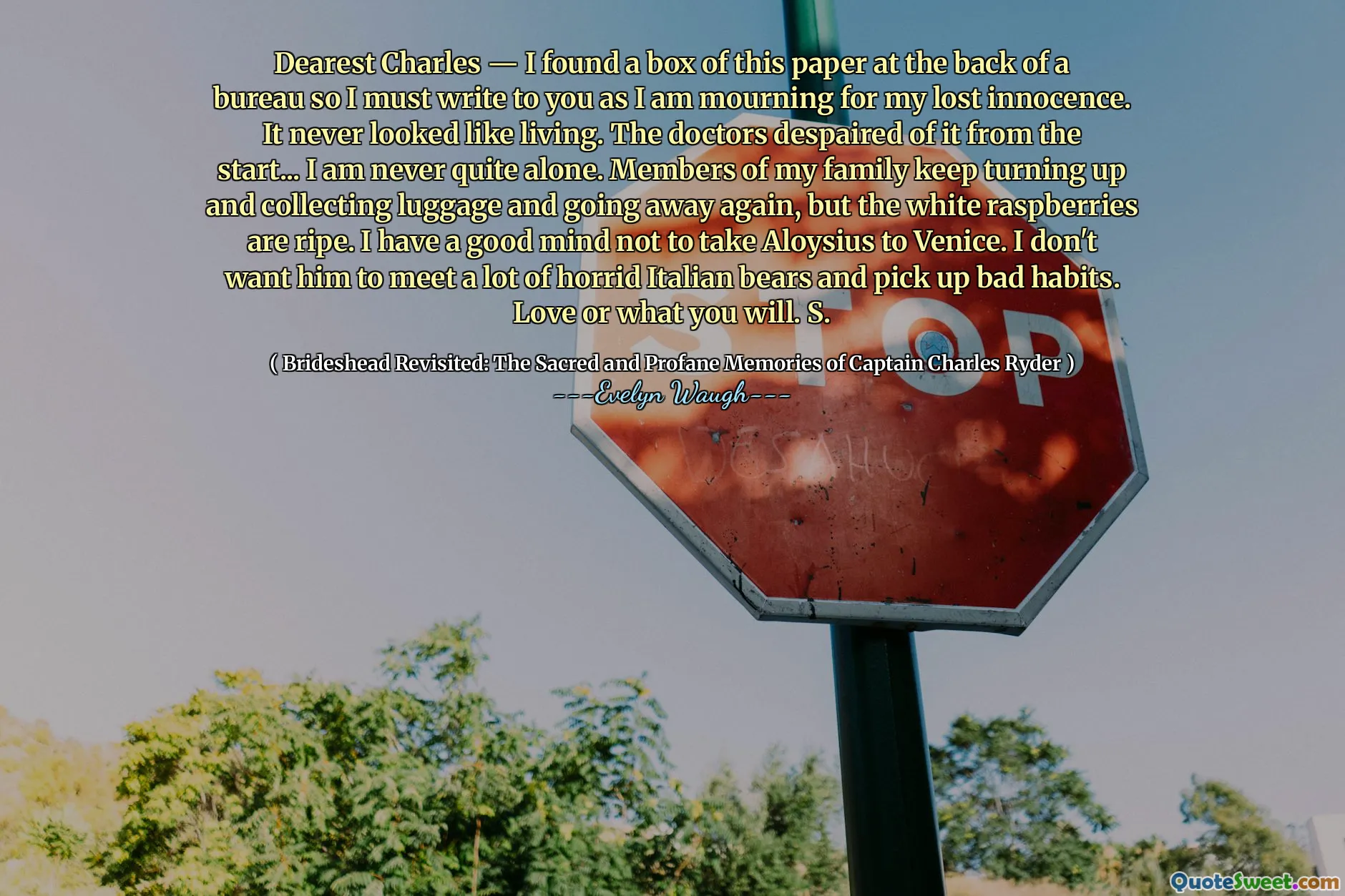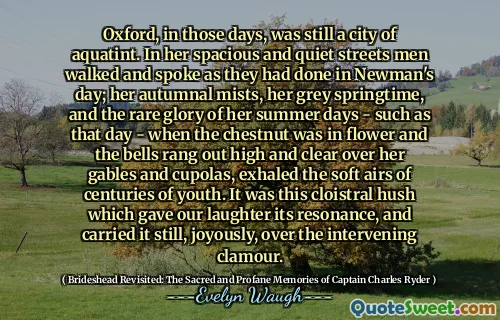
Dearest Charles — I found a box of this paper at the back of a bureau so I must write to you as I am mourning for my lost innocence. It never looked like living. The doctors despaired of it from the start... I am never quite alone. Members of my family keep turning up and collecting luggage and going away again, but the white raspberries are ripe. I have a good mind not to take Aloysius to Venice. I don't want him to meet a lot of horrid Italian bears and pick up bad habits. Love or what you will. S.
This letter, from Evelyn Waugh's 'Brideshead Revisited', captures a poignant mix of nostalgia, subtle humor, and a sense of melancholy that permeates the narrative. The writer’s tone conveys a tactile sense of longing for innocence lost, intertwined with everyday observations that seem almost poetic in their simplicity. The mention of a box of paper found in a bureau signifies a moment of reflection—an attempt to connect with someone dear, Charles—while also symbolizing the receptors of memories and the fragility of the narrator's emotional state. The phrase about mourning for innocence hints at a deeper internal struggle, perhaps reflecting on lost youth or purity. The despair of the doctors implies a sense of helplessness, possibly toward mortality or emotional deterioration, adding to the overall tone of resignation and reflection. The anecdote about the family members “going away and returning,” along with the ripe white raspberries and the consideration of not taking Aloysius to Venice to avoid encountering “horrid Italian bears,” injects a quirky undercurrent of humor, a characteristic Waugh often employs to contrast serious themes. Such imagery presents a clash of innocence and experience, sweetness and caution, capturing the complex textures of human relationships and personal memories. The signature ending, “Love or what you will,” signifies an ambiguous attribution of emotion—perhaps love tinged with uncertainty or irony—leaving readers contemplating the depth of the narrator’s feelings and their philosophical undertones. Overall, the quote exemplifies Waugh’s mastery in weaving delicate emotional truths with satirical wit, creating a layered and resonant piece that invites reading both as a personal confession and a commentary on human fragility.







